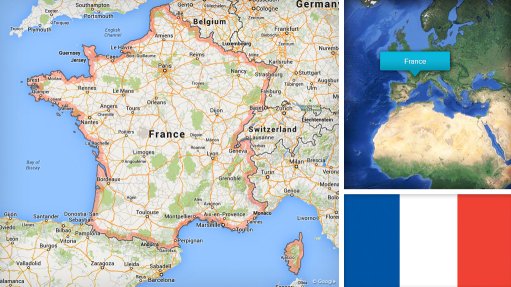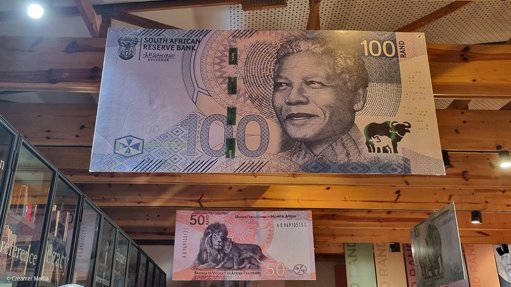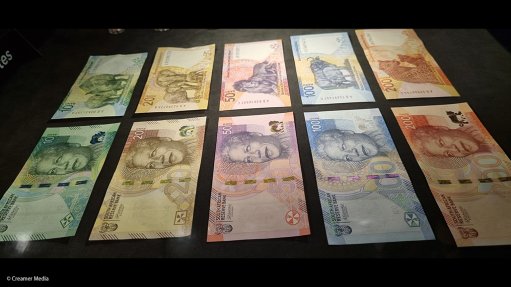African science
In Zambia, once a year, in early evening, you will be able to look at the moon and it forms a crescent, with the planet Venus in the crescent – very similar to the Islamic moon and star symbol. I do not know if this is unique to Zambia or if it occurs every year or only some years, but I know it happens because I have photographs.
I mentioned this to some of my Muslim friends and said to them that it seems to me that it is possible that the conjunction of Venus and the moon marks a certain part of the Muslim year. A Muslim month is a lunar month (synoptic for those fundis) or 29.53 days and, thus, at the end of the Muslim year, or at some time in the Muslim year, or perhaps at some times in some Muslim years, Venus sits in the cusp of the crescent of the moon.
My Muslim friends have no answer to this – I mean, they have not been taught anything about it. Similarly, the Internet has enough examples of Venus being near the moon, but never in the cusp as I have seen it. Hold this thought.
Let us turn to bantams – those fowl which resemble chickens but are smaller. Bantams have a number of distinct calls. There is a call for danger, a call for food, a call for mating and a call when they are eating happily. I heard all these calls when I was young and I can repeat them all. Nobody else I know can do this. Hold this thought.
If you are near a herd of zebra during the day, you will see them clearly. As night falls, you will see them less distinctly and then, quite abruptly, they will vanish. Even if they are no more than 20 m away, you will not be able to see them. If you shine a torch on them, you will see them straight away. Turn off the torch, and they vanish. Other animals you can see even in darkness; hippos are difficult but, if you look hard, they do pop out. Elephants you can see more or less all the time. But, as far as I am aware, there is no publication or book on the night visibility of animals. Hold this thought.
If you want to make a floor that is very hard, then find an ant hill and dig it up and load it into your bakkie. At the house, mix it with water to make mud and spread inside to make a floor. When it is dry, it will be so hard that you can polish it.
There are so many more things.
I saw a video on YouTube in which a young lady says that we must restart science from an African perspective. The ridicule to which she has been subjected is vast. On some subjects, she is wrong. But she is not wrong on everything. There are many things that we have in Africa (the above are just a few) for which we currently have no explanation and no knowledge. It is probably considered that knowledge of things like the behaviour of animals and the composition of ant hill sand is of no relevance to our society. This may well be true, but, in the toss-up between learning Maxwell’s equations and the composition of ant hill sand, probably in the end the ant hill sand will win.
Western science is very much Western science. There are plenty of professors, hydrologists, oceanographers, engineers and university lecturers who firmly think that climate change is a vehicle used by opportunists to get grant money and travel overseas to examine something that does not exist. Other scientists believe in climate change and that they can measure the temperature change of the ocean surface in fractions of a degree and predict the climate future. This is very dubious. African science is not interested in this. I doubt that African science would be interested in launching a satellite to measure a few millimetres of change in the level of the ocean. African science, I suggest, would be more interested in the interesting African things. But these we never learn. I think we should.
Article Enquiry
Email Article
Save Article
Feedback
To advertise email advertising@creamermedia.co.za or click here
Comments
Press Office
Announcements
What's On
Subscribe to improve your user experience...
Option 1 (equivalent of R125 a month):
Receive a weekly copy of Creamer Media's Engineering News & Mining Weekly magazine
(print copy for those in South Africa and e-magazine for those outside of South Africa)
Receive daily email newsletters
Access to full search results
Access archive of magazine back copies
Access to Projects in Progress
Access to ONE Research Report of your choice in PDF format
Option 2 (equivalent of R375 a month):
All benefits from Option 1
PLUS
Access to Creamer Media's Research Channel Africa for ALL Research Reports, in PDF format, on various industrial and mining sectors
including Electricity; Water; Energy Transition; Hydrogen; Roads, Rail and Ports; Coal; Gold; Platinum; Battery Metals; etc.
Already a subscriber?
Forgotten your password?
Receive weekly copy of Creamer Media's Engineering News & Mining Weekly magazine (print copy for those in South Africa and e-magazine for those outside of South Africa)
➕
Recieve daily email newsletters
➕
Access to full search results
➕
Access archive of magazine back copies
➕
Access to Projects in Progress
➕
Access to ONE Research Report of your choice in PDF format
RESEARCH CHANNEL AFRICA
R4500 (equivalent of R375 a month)
SUBSCRIBEAll benefits from Option 1
➕
Access to Creamer Media's Research Channel Africa for ALL Research Reports on various industrial and mining sectors, in PDF format, including on:
Electricity
➕
Water
➕
Energy Transition
➕
Hydrogen
➕
Roads, Rail and Ports
➕
Coal
➕
Gold
➕
Platinum
➕
Battery Metals
➕
etc.
Receive all benefits from Option 1 or Option 2 delivered to numerous people at your company
➕
Multiple User names and Passwords for simultaneous log-ins
➕
Intranet integration access to all in your organisation

















